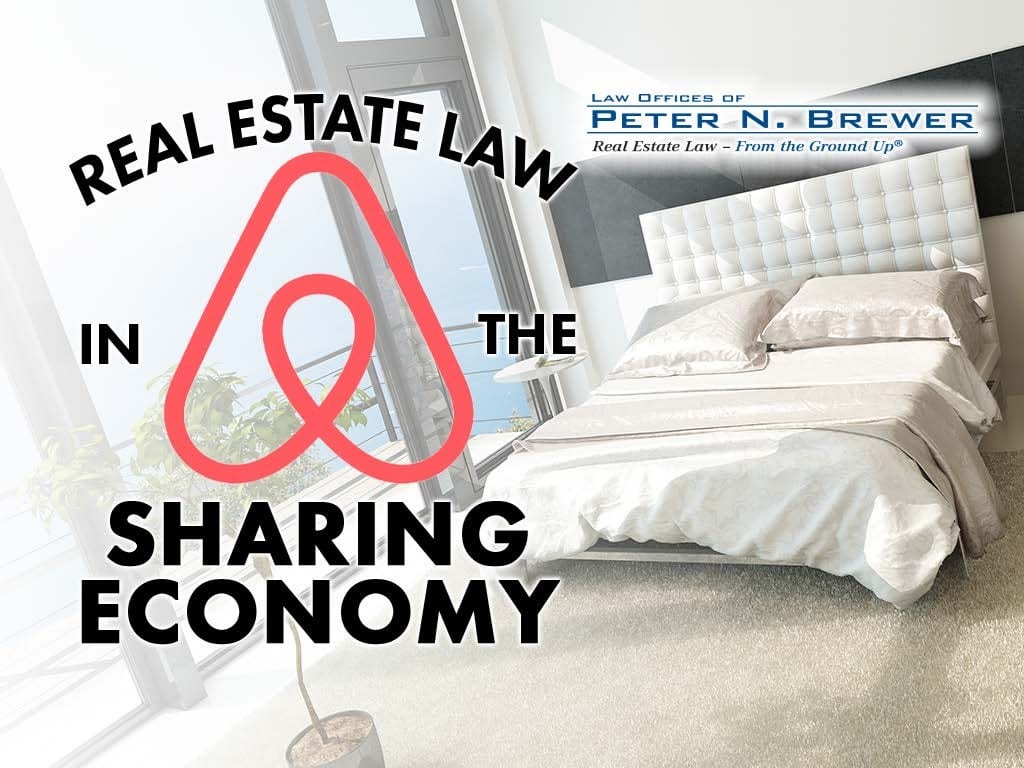In the summer of 2015, over 17 million people stayed with an Airbnb host, where only 47,000 people were using the platform just 5 years ago. The meteoric growth of short term, peer-to-peer rentals is fueled in no small part by the potential for earning extra income – Airbnb reports that the average host makes more than $7,300 a year.
As the popularity of these platforms has grown, they have challenged the profits of the world’s largest hotel chains and have prompted governments at all levels to launch regulatory inquiries. In addition, the infancy of the peer-to-peer industry, also known as the sharing economy, means that abrasion with existing legal, contractual, and regulatory frameworks is bound to occur.
As a property owner or a tenant, you may be looking to earn extra income by renting your property on Airbnb or HomeAway. Because these platforms allow strangers into your home for their stay, there are some important real estate law items you should consider before listing your property, such as:
- What is the Sharing Economy?
- How To Determine If You Can Legally List Your Property
- What Kinds of Restrictions Exist? (And How To Locate Them)
- What Issues May Arise?
- ADA, FHA, & Discrimination Considerations
- …and many other terms & considerations
Brewer Offord & Pedersen LLP recently presented a webinar on the real estate law considerations of short-term, peer-to-peer rentals. Attorney Simon Offord of Brewer Offord & Pedersen LLP provided essential information that property owners, tenants, and anyone considering renting on platforms such as Airbnb and HomeAway should know.
You can watch the replay of the webinar below, as well as view or download the slides.
Watch the Replay
View the Slides
Click Here to Download the Slides
To keep up with real estate law in California, including articles, guides, and downloads published by Brewer Offord & Pedersen LLP, visit our California real estate law blog.





